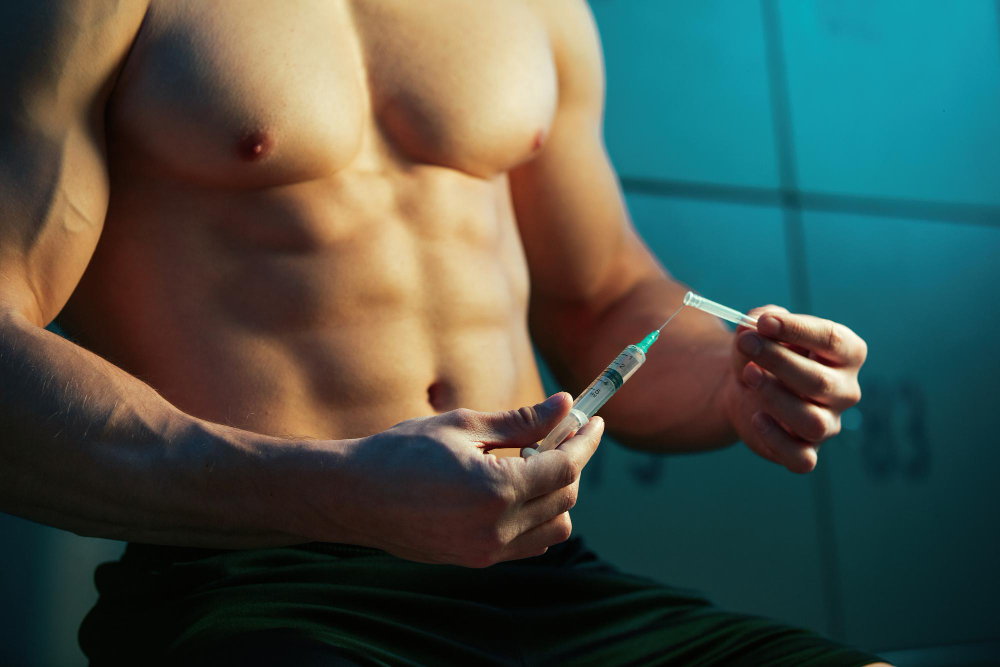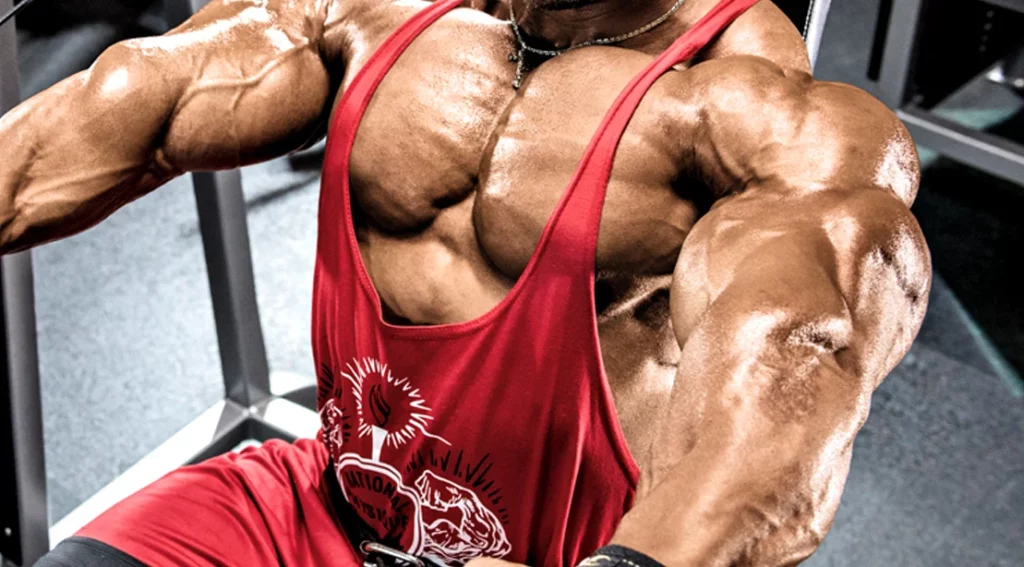Understanding Testosterone: The Vital Hormone
Testosterone, a vital male hormone, is responsible for male characteristics and plays a significant role in muscle mass and libido. Low testosterone levels can lead to various health issues, including decreased energy and mood changes. For individuals with hypogonadism, testosterone replacement therapy (TRT) can help increase testosterone levels. However, it is important to monitor hormone levels regularly during TRT to avoid potential side effects. Before starting any testosterone therapy, it is essential to consult with a healthcare provider. TRT, when administered under professional guidance, can be an effective way to address low testosterone levels and improve overall wellness.Role of testosterone in the human body
Testosterone plays a vital role in the human body. It is crucial for the development of male reproductive tissues such as the testes and prostate. Additionally, testosterone promotes the growth of muscle mass and strength, and aids in the production of red blood cells. It also influences bone density, fat distribution, and overall well-being. Adequate testosterone levels are necessary for maintaining a healthy libido and sexual function. Furthermore, fluctuations in testosterone levels can impact mood, cognitive function, and quality of life.
Common misconceptions about testosterone
There are several common misconceptions about testosterone, which is an important hormone in both men and women. It’s essential to dispel these misconceptions to have a better understanding of its role in the body. Here are some of the most common misconceptions:
- Testosterone is only found in men: While it’s true that men typically have higher levels of testosterone than women, both sexes produce this hormone. Women also rely on testosterone for various physiological functions, including muscle strength, bone density, and libido.
- Testosterone equals aggression: Testosterone is often associated with aggressive behavior, but this is an oversimplification. While it can influence aggression to some extent, it’s not the sole determinant of violent behavior. Other factors, such as genetics, upbringing, and social and environmental influences, play significant roles in shaping behavior.
- More testosterone means more muscle: While testosterone does play a role in muscle development and maintenance, it’s not the only factor. Genetics, diet, exercise, and other hormones also influence muscle growth. Simply increasing testosterone levels won’t automatically lead to significant muscle gains.
- Testosterone supplements always boost performance: Some individuals mistakenly believe that taking testosterone supplements or anabolic steroids will enhance their athletic performance. While these substances can increase muscle mass and strength, they also carry significant health risks and are often banned in competitive sports due to their unfair advantage.
- Low testosterone always causes sexual dysfunction: While low testosterone levels can contribute to sexual dysfunction, not all cases of sexual problems are due to low testosterone. Many other factors, including psychological, emotional, and relationship-related issues, can impact sexual performance.
- Testosterone declines with age in all men: While it’s true that testosterone levels tend to decrease with age in men, it’s not a universal rule. Some older men maintain normal testosterone levels, while some younger men may experience low testosterone. The decline in testosterone with age is gradual and varies from person to person.
- Natural methods can significantly boost testosterone: There are numerous claims about natural ways to boost testosterone levels, such as specific diets, supplements, or exercise routines. While some lifestyle changes can have a modest impact on testosterone levels, they may not be effective for everyone, and the results are often temporary.
- High testosterone guarantees masculinity: Having high testosterone levels doesn’t necessarily make someone more masculine or virile. Masculinity and virility are complex and multifaceted traits influenced by a variety of biological, psychological, and social factors.
- Testosterone therapy is a fountain of youth: Testosterone replacement therapy can be beneficial for individuals with clinically low testosterone levels, but it is not a magical solution to reverse the effects of aging. It should only be used under the guidance of a qualified healthcare professional and when medically indicated.
- Testosterone is solely responsible for male characteristics: While testosterone plays a central role in developing male secondary sexual characteristics like facial hair and a deep voice, other hormones also contribute to these traits. Additionally, testosterone has important functions beyond physical appearance.
It’s crucial to approach discussions about testosterone with a nuanced and evidence-based perspective, as misconceptions can lead to misunderstandings and misguided decisions about health and well-being. If you have concerns about testosterone levels or related issues, consult a healthcare professional for guidance and appropriate testing.

Steroids: What They Are and How They Work
Steroids, also known as corticosteroids, are synthetic drugs that mimic the effects of hormones produced naturally in the body. Commonly used to reduce inflammation and treat conditions like asthma and arthritis, steroids have both medical and non-medical applications.
Anabolic steroids, a specific type of steroid, are synthetic variations of testosterone and are often used illegally for muscle growth and athletic performance enhancement. They work by binding to specific receptors in the body, influencing gene expression and protein synthesis. However, it is important to note that the misuse and abuse of anabolic steroids can have serious health consequences.
The effects of steroids on the body
Steroids can have both short-term and long-term effects on the body. In the short term, they can lead to increased muscle mass, improved athletic performance, and mood changes. However, long-term use of steroids can result in serious health problems, including liver damage, cardiovascular issues, and hormonal imbalances. Steroid abuse can also cause psychological effects such as aggression, mania, and delusions. It is essential to understand the potential risks and side effects associated with steroid use. This information is for informational purposes only and should not replace professional medical advice.
The Difference Between Testosterone and Steroids
Testosterone and steroids are related but distinct concepts, often associated with bodybuilding, sports performance enhancement, and medical treatments. Here’s an overview of the key differences between them:
- Testosterone:
- Testosterone is a natural hormone produced primarily in the testes in males and, to a lesser extent, in the ovaries in females. It is an essential hormone for the development of secondary sexual characteristics, such as muscle mass, bone density, and facial hair, in men.
- In men, testosterone plays a crucial role in regulating libido, sperm production, mood, and overall well-being.
- Women also produce small amounts of testosterone, which are important for maintaining muscle mass, bone density, and sexual desire.
- Testosterone is often prescribed medically to treat conditions such as hypogonadism (low testosterone production), delayed puberty, and certain types of breast cancer in women.
- Abusing or using testosterone without a legitimate medical reason can have negative side effects, including mood swings, liver damage, cardiovascular issues, and reproductive system disruption.
- Steroids:
- Steroids, short for anabolic-androgenic steroids (AAS), are synthetic compounds that mimic the effects of natural testosterone in the body.
- Anabolic refers to the promotion of muscle growth, while androgenic refers to the promotion of masculine characteristics like facial hair and deepened voice.
- Steroids can be prescribed by doctors to treat various medical conditions, such as delayed puberty, muscle-wasting diseases (e.g., AIDS-related wasting), and hormone deficiencies.
- However, some individuals misuse steroids to enhance athletic performance or improve physical appearance, a practice known as “steroid abuse” or “doping.”
- Steroid abuse can lead to a range of health problems, including liver damage, cardiovascular issues, mood disorders, aggression, and dependence.
- Steroids are classified as controlled substances in many countries, and their non-medical use is illegal.
Feature | Testosterone | Steroids |
Definition | A naturally occurring steroid hormone produced in the body | Synthetic or chemically altered forms of testosterone |
Purpose | To regulate male sexual development, muscle mass, and bone density | To build muscle mass and strength quickly and easily |
Uses | Medical treatment for low testosterone, hormone replacement therapy, and contraception | Bodybuilding, athletics, and illegal use |
Dosage | Low, physiological doses | High, supra-physiological doses |
Side effects | Rare and mild at therapeutic doses | Common and serious at high doses |
Safety | Safe when used under medical supervision | Dangerous and can lead to serious health problems |

How steroids influence testosterone levels
Using anabolic steroids can suppress the body’s natural testosterone production, resulting in low testosterone levels. However, when used in higher doses or as part of hormone replacement therapy, steroids can also directly increase testosterone levels. It is important to note that the use of steroids without medical supervision can disrupt the body’s hormonal balance and have negative health effects.
Individuals should consult with a healthcare provider before using any form of steroid to understand its potential impact on testosterone levels. Regular monitoring of hormone levels is essential for those using steroids or undergoing testosterone replacement therapy.
Can steroids replace natural testosterone?
Steroids, such as anabolic-androgenic steroids, are not intended to replace natural testosterone. Testosterone replacement therapy (TRT) is a medical treatment specifically designed for low testosterone levels. Although steroids can increase testosterone levels, they don’t offer the same benefits as naturally produced testosterone. Working with a healthcare provider is crucial to determine the appropriate treatment for low testosterone.
Is Testosterone Replacement Therapy equivalent to Steroid Use?
Testosterone replacement therapy (TRT) and steroid use are not equivalent. TRT is a medically approved treatment that restores hormone levels in individuals with clinically diagnosed low testosterone. Steroid use, on the other hand, refers to the unsupervised and illicit use of anabolic-androgenic steroids for non-medical purposes.
Lets Sum Up
In conclusion, it is important to understand the key differences between testosterone and steroids. Testosterone is a vital male hormone that plays various roles in the human body, while steroids are synthetic substances that mimic the effects of testosterone. Steroids can have significant side effects and are often used illegally for performance enhancement.
It is crucial to note that testosterone replacement therapy is not equivalent to steroid use, as it aims to restore natural testosterone levels in individuals with deficient levels. When considering the risks and benefits, it is essential to weigh the potential pros against the cons and make informed decisions. Always consult with a healthcare professional for personalized advice and guidance.



